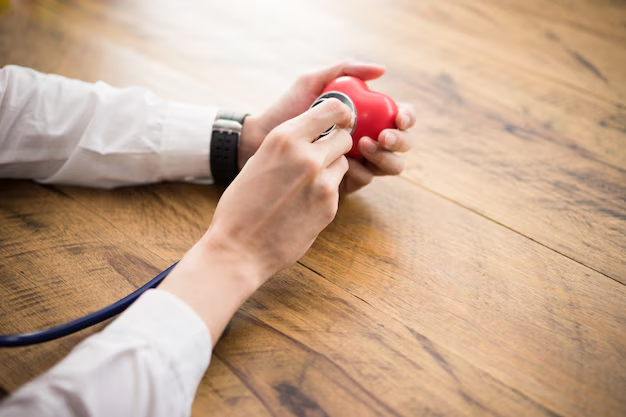Your Guide to Does Hypertension Cause Swelling
What You Get:
Free Guide
Free, helpful information about HyperTension FAQ and related Does Hypertension Cause Swelling topics.
Helpful Information
Get clear and easy-to-understand details about Does Hypertension Cause Swelling topics and resources.
Personalized Offers
Answer a few optional questions to receive offers or information related to HyperTension FAQ. The survey is optional and not required to access your free guide.
Can Hypertension Cause Swelling? Here's What You Need to Know
Hypertension, more commonly known as high blood pressure, is a condition that affects millions worldwide. While it is frequently discussed in the context of heart disease and stroke risk, many people wonder if hypertension can also cause uncomfortable symptoms like swelling. Let's dive into how hypertension might be connected to swelling and what steps you can take if you're experiencing this condition.
The Link Between Hypertension and Swelling
In medical terms, swelling is often referred to as edema, characterized by an accumulation of fluid in the body's tissues. The direct link between hypertension and edema isn't straightforward, but there are certain conditions and medications related to high blood pressure that can lead to swelling.
Heart-Related Swelling: Hypertension can eventually lead to heart failure, a condition where the heart is unable to pump efficiently. This inefficiency can cause fluid to accumulate, leading to swelling, often in the legs and ankles.
Kidney Complications: High blood pressure can also impact the kidneys, reducing their ability to filter and eliminate excess fluid and waste. This kidney impairment can result in fluid retention and consequently, swelling.
Medication Side Effects: Certain blood pressure medications, particularly calcium channel blockers, are known to cause edema as a side effect. If you're on hypertension medication and experiencing swelling, consult your healthcare provider. They might adjust your prescription to better suit your needs.
Managing Hypertension and Edema
While understanding the causes is essential, managing symptoms and improving quality of life is crucial. Here are some practical tips if you experience both high blood pressure and swelling:
Lifestyle Adjustments: Implementing a healthy diet low in salt and rich in fruits, vegetables, and whole grains can help manage blood pressure and reduce swelling.
Regular Exercise: Physical activity can boost circulation, helping to reduce edema and manage blood pressure effectively. Even a short daily walk can make a difference.
Consulting Healthcare Providers: Regular check-ups with your healthcare provider are vital to monitor hypertension and address any related symptoms like swelling.
Turning attention to these lifestyle changes can be daunting, especially if you're also navigating financial stress. Fortunately, there are numerous resources to support individuals managing chronic health conditions.
Exploring Financial and Educational Resources
Addressing health concerns often pairs well with exploring financial assistance or educational opportunities. Whether you're dealing with medical expenses or seeking to build a more stable future, these options can provide relief or empowerment:
Government Aid Programs: Programs such as Medicaid are available to assist with healthcare costs for those who qualify, providing a safety net for managing chronic conditions like hypertension.
Financial Counseling Services: Access free or low-cost financial advice through non-profit organizations to better manage both debt and healthcare expenses.
Educational Grants: Consider applying for educational grants if you're interested in healthcare or medical training, as a way to enhance your knowledge and economic standing.
Taking charge of both your health and financial well-being can lead to improved outcomes and a more secure future.
Helpful Resources and Assistance Options
💰 Medicaid: A government-funded program providing healthcare assistance for eligible individuals, helping cover costs related to managing hypertension and related conditions.
📈 Financial Counseling: Organizations like the National Foundation for Credit Counseling offer guidance on managing medical debt and budgeting effectively.
🎓 Educational Grants: Opportunities like the Pell Grant can assist in funding education, allowing you to pursue healthcare education or career advancement.
Taking advantage of these resources can make managing hypertension and its potential complications more manageable and less stressful. Stay informed, and don't hesitate to reach out for the support you need.
What You Get:
Free HyperTension FAQ Guide
Free, helpful information about Does Hypertension Cause Swelling and related resources.

Helpful Information
Get clear, easy-to-understand details about Does Hypertension Cause Swelling topics.

Optional Personalized Offers
Answer a few optional questions to see offers or information related to HyperTension FAQ. Participation is not required to get your free guide.


Discover More
- a 66 Year Old Female With a History Of Hypertension
- Are Eggs Bad For Hypertension
- Are Eggs Good For Hypertension
- Are Endocrine Disorders Causing Hypertension Rare
- Can Adderall Cause Hypertension
- Can Alcohol Cause Hypertension
- Can Allergies Cause Hypertension
- Can Anemci People Get Hypertension
- Can Anemia Cause Hypertension
- Can Antibiotics Cause Hypertension
